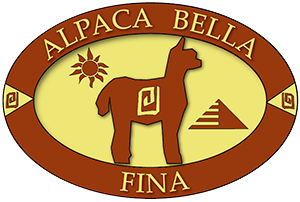- Home
- Alpacas For Sale
- Herd Sires
- Contact Us
- Seasons at Our Farm
- Alpaca Articles
- Financial Aspects of Alpaca Ownership
- Who Buys Alpacas?
- Alpaca Supply & Demand
- Alpaca Values
- Capital Requirements
- Hands-on Alpaca Ownership
- Financial Observations
- Tax Consequences of Owning Alpacas
- Methods of Financing your Alpaca Purchase
- Creating a Herd
- Alpaca Purchase Contracts
- Why Not Have Uncle Sam Help You Buy Your Alpacas?
- Making Sense of Microns
- Ancient History of Alpacas
Financial Aspects of Alpaca Ownership
Financial Aspects of Alpaca Ownership
Introduction
Why do people in so many countries call alpacas, “The worlds finest livestock investment?” For any investment to be valuable, it must possess certain qualities which make it desirable. Gold is scarce, real estate provides shelter, oil produces energy, bonds earn interest, stocks are supposed to increase in value, and diamonds symbolize love. Alpacas share many of these investment attributes.
Around the world, alpacas are in strong demand, and people pay high prices for them. They are scarce, unique, and the textiles produced from their fiber are known in the fashion centers of Paris, Milan, and Tokyo. There are excellent profit opportunities and tax advantages available to alpaca breeders. Historically, the alpaca’s value has sustained ancient cultures, such as the Incas of Peru, and today alpacas are the sustaining economic force for millions of South Americans. History has validated the value of the alpaca.
Livestock, or animals raised for profit, was an investment long before financial stocks were sold on the New York Stock Exchange. The richest families of ancient times counted their wealth by the size of their flocks of sheep or herds of cattle. Today, wealth as a result of livestock ownership is not as common, but tending to a graceful herd of alpacas can also be an exciting way to earn a substantial cash flow and live a rewarding lifestyle.
Alpaca breeders enjoy nurturing their animals every bit as much as receiving the profits they provide. A retired doctor who is now a full time alpaca breeder had this to say: “I would rather raise alpacas than anything I’ve ever done. Breeding alpacas is a labor of love and very profitable.”
Since 1984, alpacas have appeared, almost simultaneously, in several countries where they had never been seen before. The U.S., Canada, New Zealand, France, Australia, and England have all acquired the foundation animals for national herds. What makes this animal so desirable? Bottom line: alpacas are both profitable and enjoyable.
Chapters:
1. Introduction
2. Who Buys Alpacas?
3. Supply & Demand
4. Alpaca Values
5. Capital Requirements
6. Hands-On Ownership
7. Financial Observations
8. Tax Consequences
9. Financing
10. Creating a Herd
11. Purchase Contracts
